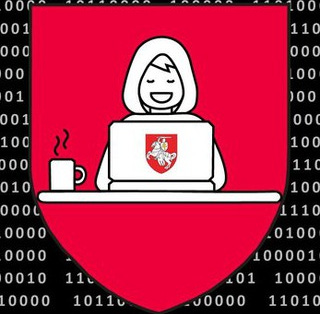Limited distribution: Russian Censor Files (335 GB)
Emails and files from the General Radio Frequency Center of the censorship agency Roskomnadzor, via the Belarusian Cyber-partisans
Almost a year after the Russian invasion of Ukraine, we have indexed a new leak from Russia’s censorship agency Roskomnadzor. These documents and emails come from the internal network of the General Radio Frequency Center (GRFC) subdivision of Roskomnadzor. GRFC monitors social media and other open sources in order to implement the Kremlin’s media policies and provide data for decision makers. The GRFC surveils Putin's opponents, writes reports to the FSB & other agencies, and blocks access to independent media sources on the internet.
This is a new dataset, and is different from the 820 GB leak we published in March 2022 from the Republic of Bashkortostan’s office of Roskomnadzor.


The GRTC leak is courtesy of the decentralized hacktivist collective Belarusian Cyber-Partisans. Cyber-Partisans shared the dataset with DDoSecrets, and DDoSecrets made the data available to a number of outlets under embargo. We also made the data searchable as part of the Hunter Memorial Library. The embargo, led by the IStories and Süddeutsche Zeitung newsrooms, has been lifted. The journalists have published their research with the title “Russian Censor Files.” Süddeutsche Zeitung details how the censorship agency operates, by importing messages like YouTube comments and post on Russian social media sites:
They write in Russian, lamenting the victims and violence of the war of aggression against Ukraine. Shortly thereafter, both articles land in the e-mail inbox of the Russian media supervisory authority Roskomnadzor, RKN for short. Subject: "Killing of civilians", attached a table of all social media posts with "potentially illegal content" found that day … Computational linguistics software is used to assess whether suspicious posts are written in a negative, neutral, or positive tone.
At the request of the source, access to the dataset continues to be restricted to journalists and other researchers. People with a history of publishing can now get in touch with us to request access to this collection which is part of our Limited Distribution section.
Novaya Gazeta wrote about the leak:
Negative messages are being searched with the use of the Brand Analytics system using the following keywords: “bald midget”, “PutinThief”, “Corruptionist-in-Chief”, “Putler”, and others.
IStories reports that the Kremlin’s goals of total surveillance may be far from implementation:
The leaked documents show that Roskomnadzor's plans for total censorship of the Internet using artificial intelligence are still very far from being realized. But it is obvious that as new functions and systems are introduced, the scale of surveillance of those who dare to speak out in a way that is not beneficial to the Russian regime will grow.
Still, documents like terms of reference for software specifies what violations the state is concerned with. IStories writes:
“In addition to information about terrorism, drugs, and suicide methods, the system should detect calls for rallies and their approval, calls for the violent overthrow of power, as well as insults to the president (“phototoads, demotivators, cartoons, sexual intercourse”), obscene vocabulary in relation to him and "comparing the president to negative characters eg Hitler, werewolf, dictator, racist, traitor"… Also on the list of violations are “demonstration of the attractiveness of the image of representatives of LGBT culture” and “images of persons that do not correspond to the traditional image of a man and a woman (for example, masculine female faces, men with makeup).”
Documents in this collection also help to tell the story of the war since the invasion of Ukraine. Also from IStories:
The document notes that paragraphs related to “justifying and calling for the violent overthrow of power”, insulting the president and accusing him of extremism, were added to the document on February 17, 2022 - a week before the start of a full-scale Russian invasion of Ukraine.
We will collect all the links to research that uses these files at our index article Russian Censor Files.
Like our publication? Support us today by donating or by seeding our torrents. We have a new RSS feed where all new torrents will be posted.
Disclaimer
This dataset was released in the buildup to, in the midst of, or in the aftermath of a cyberwar or hybrid war. Therefore, there is an increased chance of malware, ulterior motives and altered or implanted data, or false flags/fake personas. As a result, we encourage readers, researchers and journalists to take additional care with the data.
This is a standard disclaimer that will be added to all datasets in the Cyberwar category, even absent specific suspicions.


